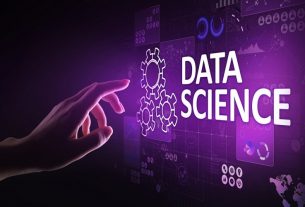In this age of big data, every decision making process is dependent upon the data driven insights which an organization manages to gather. These datasets help in analysing market trends and maximize growth and revenue. Emerging technologies like IoT, Smartphones, AI, and Blockchain have further accentuated the dependence of firms on data sets.
The world is generating over 2.5 quintillion bytes of data every day and every business is recording a vast amount of sensor data. However, the problem firms face is that the data they collect is noisy and messy, and not in a usable form. As per Inc.com, almost 60-73% of an enterprise’s data goes unused. This is where the role of a Data Analyst comes into picture.
Data Analysts help in interpreting data and creating insights from it. There’s a big demand for such professionals in almost every sector, as every business wants to use data for its benefit. This is a key reason why students are pursuing an online Data Analyst Course in Bangalore, Mumbai, Delhi and various other Tier 1 cities.
Since 2019, the big data industry has seen a 46% increase in the hiring processes. As per the reports of India Today, it has been predicted that there’ll be more than 11 million job openings in the data industry by 2026. As a result, many software developers and engineering students have realized the demand in the field of big data. Those who have an allied degree are already looking for a Data Analysts role. For those who are still in college, online Data Analyst courses turn out as saviour.
Who is a Data Analyst
- Data Analyst is a professional who deals with collecting, cleaning, and interpreting data sets in order to spot trends, make forecasts, and extract useful information out of it.
- They translate numbers, statistics, figures into an understandable language, and help the organization make better-informed business decisions.
- These individuals use techniques from a range of disciplines like Computer Programming, Mathematics, Statistics, etc.
- Data Analysts are today required in many industries like Business, Finance, Criminal Justice, Science, Medicine, Government, etc.
What are the Roles and Responsibilities of a Data Analyst?
The day-to-day responsibilities of Data Analysts include the following tasks.
- Data Collection: They collect data by conducting surveys or tracking visitor characteristics on a company website. Sometimes they all buy datasets from data collection specialists.
- Data Cleaning: Raw data is dirty and consists of errors, duplicates, outliers, etc. Therefore to maintain the quality of data, they clean them using various methods.
- Data Modeling: It includes creating and designing the structures of a database. They decide what type of data to store and collect and how it would appear in the database.
- Data Interpretation: This process involves finding patterns and trends in the data that help to answer various business-related queries.
- Data Visualization: It is a process that deals with communicating the data analysis results in the form of charts, graphs, writing reports, etc.
What are the Skills Needed in a Data Analyst
To build a career as a data analyst, one should have both technical and soft skills. These skills have been explained below.
Analytical Skills
- A Data Analyst should have a good command over some of the data analysis tools and should be able to use them to build queries.
- SQL and Excel are the main analytics tools that they need to master.
Data Visualization Skills
- Since their primary work is to present accurate data in a form that everyone understands, therefore they should have the skill to present them in the form of charts, tables, etc.
- They should be able to use some of the data visualization tools like Tableau, SAS, Cognis, etc.
Programming Skills
- Programming is also one of the necessary skills that data analysts should have to reduce their repetitive work.
- They should have command over at least one programming language among R, SAS, and Python.
Soft Skills
- For working in any sort of organization, data analysts should have some soft skills.
- They should have good communication skills and should be collaborative in nature.
Data Analyst Salar
The big data and analytics industry has reached a revenue of $66.8 billion in 2020 and is expected to see an 8.7% CAGR through 2024.
- The average salary of a data analyst in India is around ₹4,47,224 per annum [Source:com].
- Freshers who have a 0-1 year experience can expect an average salary of ₹3,53,769 per annum, including tips, bonus, and overtime.
The average total compensation based on the years of experience has been mentioned in the table below (Source: PayScale.com)
| Years of Experience | Average Salary Per Annum |
| 0-1 | ₹3,53,769 |
| 1-4 | ₹4,42,638 |
| 5-9 | ₹7,01,419 |
| 10-19 | ₹9,79,323 |
| 20+ | ₹15,00,000 |
How to Become a Data Analyst
Anyone can become a data analyst given they have adequate knowledge, skills, and interest. The key points to consider while building a career as a data analyst have been explained below.
Education
- Data analytics is an interdisciplinary field that has the data science part, statistics part, and business part.
- Therefore, those who hold at least a bachelor’s degree in data science, computer science, etc. can easily build a career as a data analyst.
- Those who have degrees in the areas of mathematics, statistics, economics, etc. can also build a career as data analysts.
- Also, candidates not having a degree in the above-mentioned areas but having the required technical skills like Excel, Python, and Data Visualization are also eligible for this career.
Certification
The candidates who do not have exact knowledge about data analysis can take up certification courses to gain knowledge and skills that are required as a data analyst.
Projects
Employers usually look for experienced candidates. As a fresher it is difficult to find a job without experience, therefore the candidates can take up data analysis projects. The projects are quite relevant and useful.
Currently data analysts are in huge demand. Those who want to begin their career in the field of big data can start with the role of data analyst and then can shift to a better position as a data scientist or data architect. If you are interested in this career, then don’t miss this opportunity and join a certification course with websites like Simplilearn, Coursera, Udemy, IBM, and Google today itself.



